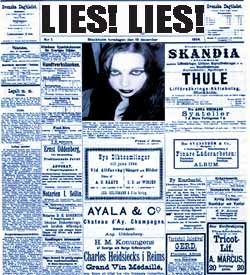When was the last time you wrote your clients?
No, I don’t mean sending a Christmas card, the same one you send to all your clients. I mean a real letter. With real words, not a holiday sentiment written by someone else.
A letter from you (not your firm), not to promote anything, or remind them to update their Will or do their fourth quarter Minutes. Just to say hello. Or to send them an article you thought they might like.
I know, you’ll get back to me on that.
Not long ago, this might have been a big project. Expensive, too. You don’t have that excuse today. Email makes it simple, and virtually free.
If you don’t have an email list for your clients, you need to. Make this your numero uno marketing project. At the top of your list. With a gold star and three exclamation points!!!
Because if you don’t, you won’t write your clients, at least not as often as you should. And if you do, you will have a mechanism for “fundamentally transforming” your practice. English translation: make a boat load of money.
An email list, and regular contact with it, to your clients, prospects, and professional contacts, is critical today. You want repeat business? Stay in touch with your list. You want referrals? Stay in touch with your list. You want traffic to your web site? Stay in touch with your list. All you need is a few minutes to write something and then click a button to send.
That’s the easy part. The hard part? Wanting to do it. See, I know you want the business. What I don’t know is if you believe me when I tell you that this is one of the best ways to get it.
If you’re afraid they don’t want to hear from you, you’ve got to get over that. Send them something interesting, valuable, or inspiring, and they will be glad you wrote and look forward to your next message. Stay in touch with them and when they need your services or know someone who does, they won’t go to a search engine to find a lawyer, they’ll go to their email inbox and find your number.
Lawyers are complicated. Marketing is simple.










How to get free content for your blog
First, don’t assume you need to spend hours writing your posts. As I’ve written before, a post can be a few paragraphs that take just a few minutes to write. It can be as simple as taking something you read online and adding your comments. Tell why you agree, or disagree, link to another post that provides a different viewpoint or additional information, or share a story from your practice that illustrates the points in the article.
For longer posts, you have several alternatives:
One of the best ways to get original content for your blog is through guest posts. Someone else writes the post in return for a byline and link to their blog.
The benefits to you are
The benefits to the guest blogger are
Now, what’s good for the goose is good for the gander. If guest posts are a good way to get exposure and traffic, why not offer to do some guest posting yourself? Find blogs that write for your target market and offer to do a guest post. Here are 21 tips for landing guest posts.
Perhaps the biggest benefit of guest posts is that they allow both parties to make a new connection. This can lead to referrals, introductions, advice, interviews, endorsements, networking and cross marketing opportunities.
Start looking for blogs that reach your target market. Invite them to write a guest post for your blog or offer to do the same for theirs.